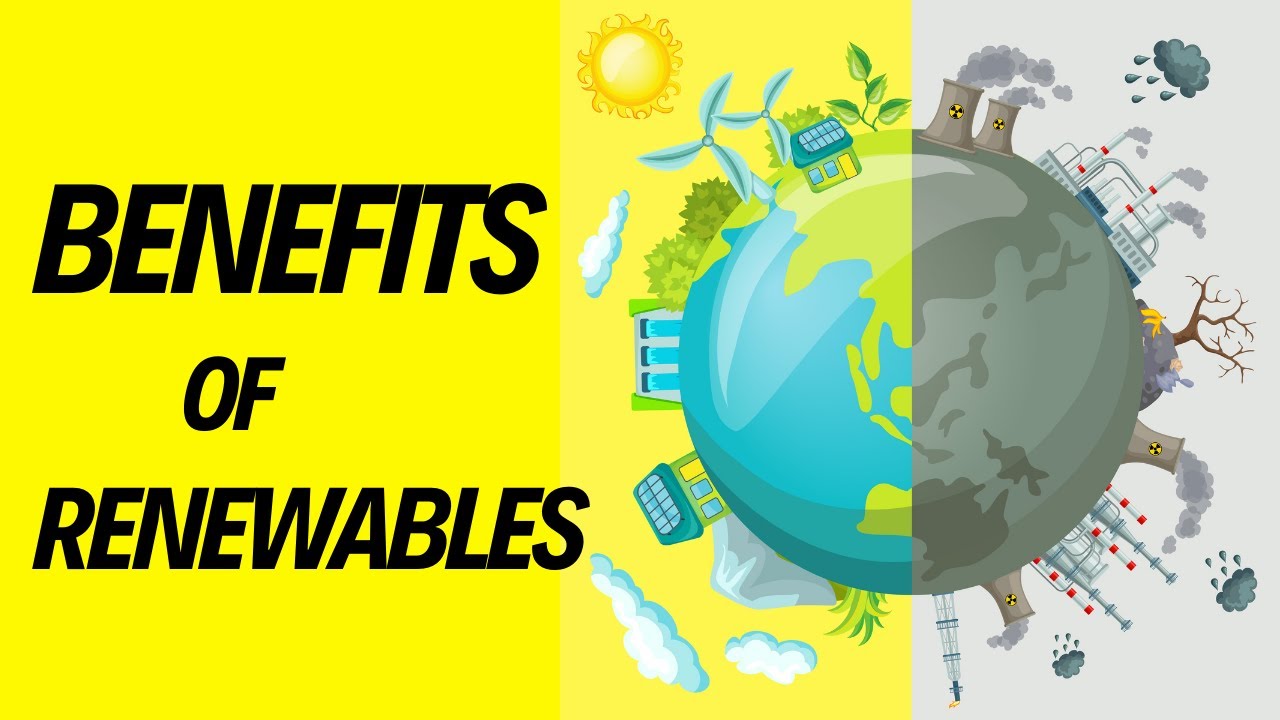
Introduction to Renewable Energy
In recent years, the conversation surrounding energy sources has shifted dramatically. With the looming threat of climate change and the depletion of fossil fuels, renewable energy has emerged as a crucial alternative. Renewable energy sources, such as solar, wind, hydroelectric, and geothermal, provide a sustainable way to power our lives without the harmful environmental impacts associated with traditional energy sources. In this article, we will explore the top 10 benefits of renewable energy that you need to know.
1. Environmental Benefits
One of the most significant advantages of renewable energy is its positive impact on the environment. Unlike fossil fuels, which release a large amount of greenhouse gases and other pollutants, renewable energy sources produce little to no emissions. This leads to a variety of environmental benefits:
- Reduced Air Pollution: By decreasing reliance on fossil fuels, renewable energy reduces harmful air pollutants, contributing to cleaner air and healthier communities.
- Lower Greenhouse Gas Emissions: Renewable energy sources emit little to no carbon dioxide, helping to mitigate climate change.
- Conservation of Natural Resources: Utilizing renewable energy helps to conserve finite resources, such as coal, oil, and natural gas.
2. Economic Advantages
The shift to renewable energy is not only beneficial for the environment but also offers substantial economic advantages. The renewable energy sector has become a significant driver of economic growth. Here are some key points to consider:
Job Creation
The renewable energy industry is labor-intensive, which means it creates a large number of jobs. According to recent studies, jobs in renewable energy are expected to grow significantly over the next decade.
Energy Independence
Investing in renewable energy can lead to energy independence, reducing reliance on foreign oil and enhancing national security. Countries can harness their natural resources, leading to a more stable energy supply.
Long-Term Savings
Although the initial investment in renewable energy technologies can be high, the long-term savings on energy bills and maintenance costs can be substantial. Many renewable energy systems, such as solar panels, have low operating costs after installation.
3. Energy Security
Renewable energy sources enhance energy security by diversifying the energy supply. Unlike fossil fuels, which are often subject to market fluctuations and geopolitical tensions, renewable resources are abundant and widely available. This diversification leads to:
- Stability in Energy Prices: With a reduced reliance on imported fuels, countries can stabilize energy prices.
- Resilience Against Supply Disruptions: Renewable energy systems are often decentralized, making them less vulnerable to large-scale supply disruptions.
4. Technological Innovation
The renewable energy sector is at the forefront of technological innovation. Advancements in technology have made renewable energy more efficient, affordable, and accessible. Key innovations include:
Improved Energy Storage
As renewable energy sources like solar and wind are intermittent, energy storage technologies, such as batteries, have seen significant advancements, allowing for better integration into the energy grid.
Smart Grid Technology
Smart grid technologies enable better management of energy resources, optimizing the distribution and use of renewable energy.
5. Health Benefits
The transition to renewable energy has profound health benefits for individuals and communities. By reducing air pollution and greenhouse gas emissions, renewable energy contributes to better health outcomes:
- Reduced Respiratory Issues: Cleaner air leads to fewer respiratory illnesses and related health issues.
- Lower Healthcare Costs: Improved public health can lead to significant reductions in healthcare costs associated with pollution-related diseases.
6. Sustainable Development
Renewable energy plays a crucial role in achieving sustainable development. It supports the global goal of providing access to affordable, reliable, and sustainable energy for all. This is essential for:
- Poverty Reduction: Access to renewable energy can improve living standards and provide new economic opportunities in underserved communities.
- Rural Electrification: Renewable energy sources can provide electricity to remote areas that are not connected to the grid.
7. Global Warming Mitigation
One of the most pressing challenges of our time is global warming. The increased use of renewable energy is crucial in mitigating this issue. By reducing reliance on fossil fuels, we can:
- Lower Carbon Footprint: Transitioning to renewable energy significantly reduces individual and collective carbon footprints.
- Support International Climate Agreements: Countries can meet their commitments to international climate agreements, such as the Paris Agreement, more effectively by investing in renewable energy.
8. Increased Property Values
Homes and businesses that utilize renewable energy technologies, such as solar panels, often see an increase in property values. This trend can be attributed to several factors:
- Lower Utility Bills: Properties with renewable energy installations often have lower energy costs, making them more attractive to buyers.
- Desirability of Sustainable Features: As consumers become more environmentally conscious, properties with renewable energy systems are in higher demand.
9. Energy Efficiency Improvements
Renewable energy initiatives often go hand-in-hand with efforts to improve energy efficiency. This includes upgrading buildings, enhancing insulation, and using energy-efficient appliances. Benefits of energy efficiency improvements include:
- Reduced Energy Consumption: By using less energy, individuals and businesses can save money on utility bills.
- Lower Environmental Impact: Energy-efficient practices lead to less energy generation required, further reducing emissions.
10. Community Engagement and Empowerment
The transition to renewable energy fosters community engagement and empowerment. Local communities can take charge of their energy sources, leading to:
- Community Solar Projects: These initiatives allow communities to invest in and benefit from solar energy collectively.
- Local Job Creation: Community-driven renewable energy projects can create jobs and stimulate local economies.
Conclusion
As we move forward in the 21st century, the importance of renewable energy cannot be overstated. The benefits of renewable energy are vast and multifaceted, impacting not just the environment, but also the economy, public health, and social equity. Transitioning to renewable energy sources is not merely a choice; it is a necessity for a sustainable and prosperous future. By embracing these technologies, we can create a cleaner, healthier, and more resilient world for generations to come. Understanding and promoting the numerous benefits of renewable energy is essential for individuals, communities, and nations alike.

